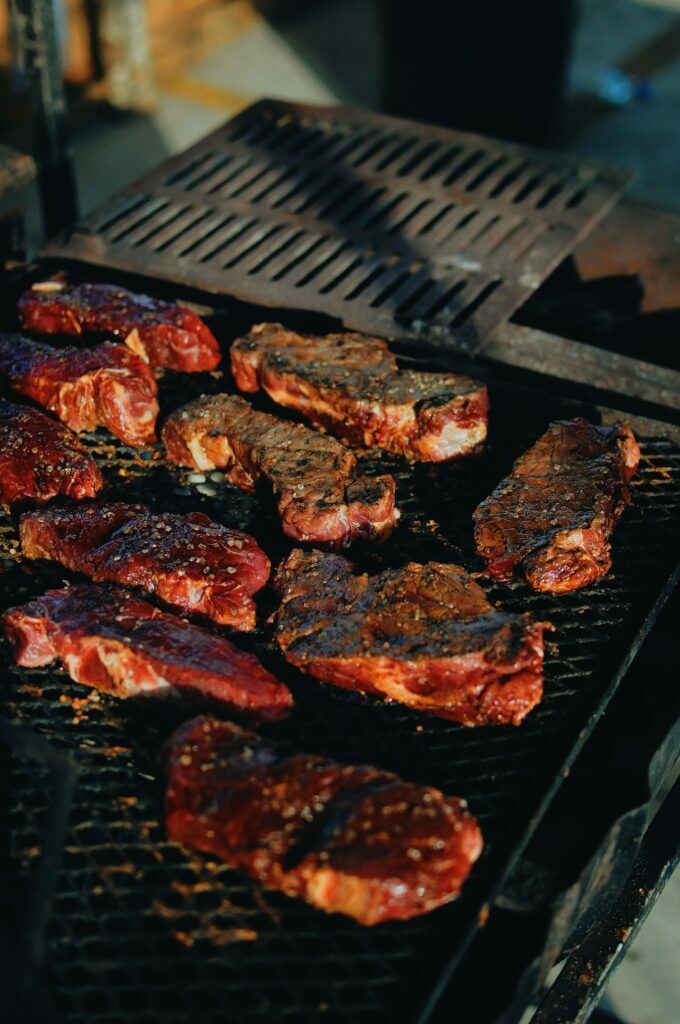Iron is an essential mineral that plays a crucial role in the production of red blood cells, which carry oxygen throughout the body. Without sufficient iron intake, you may experience fatigue, weakness, and other health problems. In this article, we will discuss the top iron rich foods that can help you meet your daily iron requirements.

Importance of Iron in the Body:
Iron is an essential mineral that plays a crucial role in transporting oxygen throughout the body. It’s a component of hemoglobin. Which is the protein in red blood cells that carries oxygen from the lungs to the rest of the body. Iron is also essential for the production of myoglobin. It is the protein in muscle cells that stores oxygen for energy production.
Iron is also important for immune function, brain development, and the production of hormones and enzymes. Without sufficient iron intake, you may experience fatigue, weakness, and other health problems.
Types of Iron
There are two types of iron:
Heme and non-heme. Heme iron is found in animal-based foods like red meat, poultry, and seafood. And is highly bioavailable, meaning it’s easily absorbed by the body. Non-heme iron is found in plant-based foods like legumes, tofu, and leafy green vegetables. But is not as easily absorbed as heme iron.
Top 10 Iron-Rich Foods
Red Meat: Beef, lamb, and pork are excellent sources of heme iron, which is highly bioavailable and easily absorbed by the body.
Poultry: Chicken, turkey, and other poultry products are rich in heme iron and can help meet your daily iron needs.
Seafood: Shellfish, including clams, oysters, and mussels, are among the most iron-rich foods available. Fish, such as salmon, tuna, and halibut, are also good sources of iron.
Legumes: Lentils, chickpeas, kidney beans, and other legumes are excellent plant-based sources of iron. They are also rich in fiber and other essential nutrients.
Tofu: This soy-based product is an excellent vegetarian source of iron, as well as other essential nutrients like protein and calcium.
Spinach: This leafy green vegetable is a good source of non-heme iron. Which is not as easily absorbed as heme iron but can still help you meet your daily iron needs.
Broccoli: This cruciferous vegetable is not only a good source of iron. But also packed with other essential nutrients like vitamin C, fiber, and folate.
Quinoa: This versatile grain is a good source of iron, as well as other essential nutrients like protein, fiber, and magnesium.
Nuts and Seeds: Pumpkin seeds, cashews, and almonds are just a few examples of iron-rich nuts and seeds that can help you meet your daily iron requirements.
Dark Chocolate: This delicious treat is a surprising source of iron, with just one ounce providing nearly 20% of the recommended daily intake.
Incorporating these foods into your diet can help you meet your daily iron needs and prevent iron deficiency anemia. However, it’s important to note that some individuals may require iron supplements or additional dietary changes to meet their specific iron needs.
Tips for Incorporating Iron-Rich Foods into Your Diet:
Plan your meals ahead of time to ensure that you’re getting enough iron-rich foods throughout the day.
Experiment with different recipes and cooking methods to keep your meals interesting and enjoyable.
Pair iron-rich foods with foods that are high in vitamin C, which can enhance iron absorption.
Consider taking an iron supplement if you’re not able to get enough iron from your diet alone.
Consider using a cast-iron skillet when cooking. Cooking acidic foods in a cast-iron skillet can help increase the iron content of your meals.
Avoid consuming iron-blocking foods with iron-rich foods. Calcium-rich foods like dairy products and caffeine can inhibit iron absorption, so it’s best to avoid consuming them with iron-rich meals.
If you’re a vegetarian or vegan, try pairing iron-rich plant-based foods with vitamin C-rich fruits and vegetables or consuming iron-fortified foods like breakfast cereals.
Conclusion
Iron is a vital mineral that plays a crucial role in maintaining overall health and well-being. Consuming a diet rich in iron-rich foods can help you meet your daily iron requirements and prevent iron deficiency anemia. Incorporating lean red meat, poultry, seafood, legumes, tofu, spinach, broccoli, quinoa, nuts and seeds, and dark chocolate into your meals is an excellent way to ensure that you’re getting enough iron. Additionally, planning your meals, experimenting with recipes, and pairing iron-rich foods with vitamin C-rich foods can help enhance iron absorption and ensure that you’re meeting your specific iron needs. By following these tips, you can improve your overall health and well-being and potentially outrank other articles on the topic of iron-rich foods.
